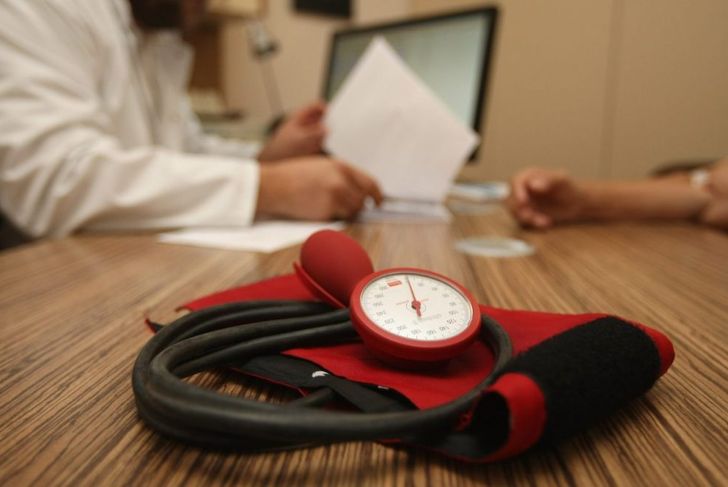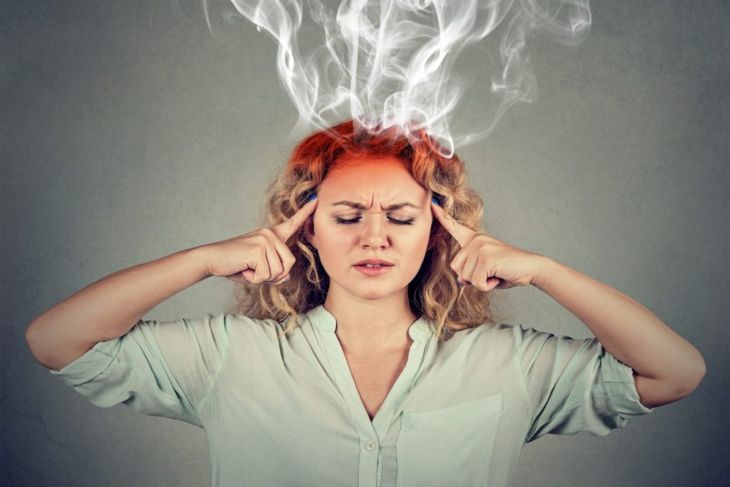High blood pressure or hypertension affects millions of people of all ages and increases the risk of heart disease and stroke. Many risk factors contribute to the condition, such as obesity, drinking too much alcohol, smoking, and a family history of related issues. High blood pressure is considered a silent killer, in part because the generic symptoms are indicative of many different diseases and conditions.
Blurred Vision
Those with hypertension may experience blurred vision. High blood pressure can damage the vessels supplying blood to the retina, which leads to blurred vision. The optic nerve can also be affected.
Terrible Headaches
Severe headaches are a sign of a rare form of high blood pressure called malignant hypertension. Malignant hypertension is exceedingly high blood pressure that creates abnormally high pressure in the cranium, the part of the skull that surrounds the brain. As the blood pressure increases to dangerous levels, pain builds up in the head, often causing migraines or severe headaches. Malignant hypertension is a medical emergency and should be treated promptly.
Difficulty Breathing
Difficulty breathing could be an indicator of high blood pressure, which causes thickening and stiffening of the heart wall leading to difficulty breathing. If easy tasks suddenly leave an individual short of breath, this could be a warning sign and should prompt immediate medical care.
Queasiness or Nausea
When blood pressure increases, the heart pumps out less blood which means less blood is reaching the organs. As a result, extra pressure is placed on the heart. A lack of oxygenated blood to the brain causes digestive uneasiness and nausea. As a single symptom, nausea does not suggest hypertension. However, nausea associated with blurred vision and severe headaches may be a sign of malignant hypertension.
Sleepiness
The inner organs can grow weak or become impaired due to high blood pressure because the heart is pumping out less blood. Insufficient blood flow results in fatigue and sleepiness. Mental or physical exhaustion without a clear cause is a sign to check blood pressure.
Nose Bleeds
Hypertension can cause nosebleeds which, if they grow progressively worse, can indicate hypertension. This occurs because the increased blood flow harms the tiny blood vessels in the nose. If a person is getting frequent nose bleeds, it is important to check blood pressure.
Dizziness
People with hypertension may experience dizziness due to a lack of oxygen reaching the brain. While dizziness can be a side effect of some blood pressure medications, high blood pressure itself does not usually cause dizziness. Sudden dizziness associated with loss of balance or coordination, and trouble walking can be warning signs of a stroke, and high blood pressure is a leading risk factor.
Discolored Skin
Bluish skin or mucous membranes is called cyanosis and is usually due to a lack of oxygen in the blood. Red blood cells provide oxygen to body tissues, usually transporting a full supply. These blood cells are bright red, hence the pink or reddish tone of the skin. Blood that has lost its oxygen is dark bluish-red or purple. When their oxygen levels drop, even a small amount, a person maybe develop cyanosis. This symptom is associated with pulmonary hypertension — high blood pressure in the arteries of the lungs.
Brain Fog
As people age, slower brain function is normal, but it can also be a sign of high blood pressure. Some people completely lose interest in carrying out daily activities, and this should be a sign to seek medical attention. Brain fog develops when the oxygen supply to the brain diminishes, causing a lack of focus and problems with memory and learning.
Swollen Feet
Swollen feet can be a sign of heart disease, poor circulation, or kidney, lung or liver disease. Medication used for high blood pressure, particularly calcium channel blockers, can cause swollen feet.

 Home
Home Health
Health Diet & Nutrition
Diet & Nutrition Living Well
Living Well More
More




















